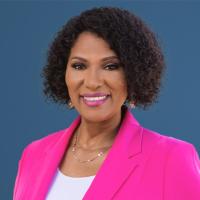'Hard to Compete with Free Money:' Businesses Struggle as Gov't Pays People Not to Work
Davis Professional Services in Chesapeake, Virginia specializes in cleaning commercial properties and feels the impact of the labor shortage in America.
"The labor force is just stagnant," owner Jerry Flug told CBN News. "It's not moving. It's not doing anything."
For more than 25 years, Flug has run his janitorial company, then the pandemic hit, causing him to lose about 25% of the business.
As the company rebounds, more workers are needed.
"It's been a big struggle for us to fill those positions," explained Flug. "Right now, we currently have about 30 to 35 positions that are open."
Across the country businesses are emerging from the pandemic in the face of a labor shortage, especially in the service industry.
According to the Economic Policy Institute, child-care issues and ongoing fears about the pandemic are somewhat to blame.
But many say enhanced unemployment benefits are also keeping the unemployment rolls at 9.8 million – about 3.6 million higher than before the pandemic.
Employers say the federal $300 weekly unemployment benefits are giving people a reason to decline work.
"It's a big deal and it's hard to compete with free money right now," said Flug.
That's why more than 20 states are ending the federal benefit that Congress enacted during the pandemic to support people when the economy shut down because many have been receiving more income from unemployment than their previous work.
"Just last week this woman came to tour and was calculating her hours and was saying actually I'm going to make more money off unemployment than I would be making here," said Mary Flug, a recruiter at Davis Professional.
"She went through the whole process. She even signed the paperwork with us and the next day she was out the door. It just happens. We've just gotten used to it."
Keri Terray, who manages human resources at Davis, says with so many job openings workers are weighing their options.
"I think that it has brought a certain level of audacity for people to feel like they can wheel and deal," said Terray. "There's more of a bargaining level that they're expecting because they know that they have so many options. And we have to do what we can do to be attractive to these job seekers."
That includes re-hiring former employees.
"We reach back out to them, call them and ask, 'Would you by any chance be interested in being a Davis team member again?'" explained Terray. "And we've actually had people who've said I hadn't considered that - that might be a good idea."
Flug has even rolled up his sleeves to help make up the slack.
"It's all hands-on deck," he explained. "We do have kind of an approach of I'm not going to ask anybody to do anything I'm not willing to do myself. Over the past couple weeks, we've jumped in the truck, cleaning carpets, stripping, and waxing floors, whatever needed to be done."
Meanwhile, Flug says he is hopeful that business will soon return to normal.
"In the upcoming weeks we really feel like traction's gonna start happening and people are going to start going yeah I need to get back to work and take care of my family," he said.




